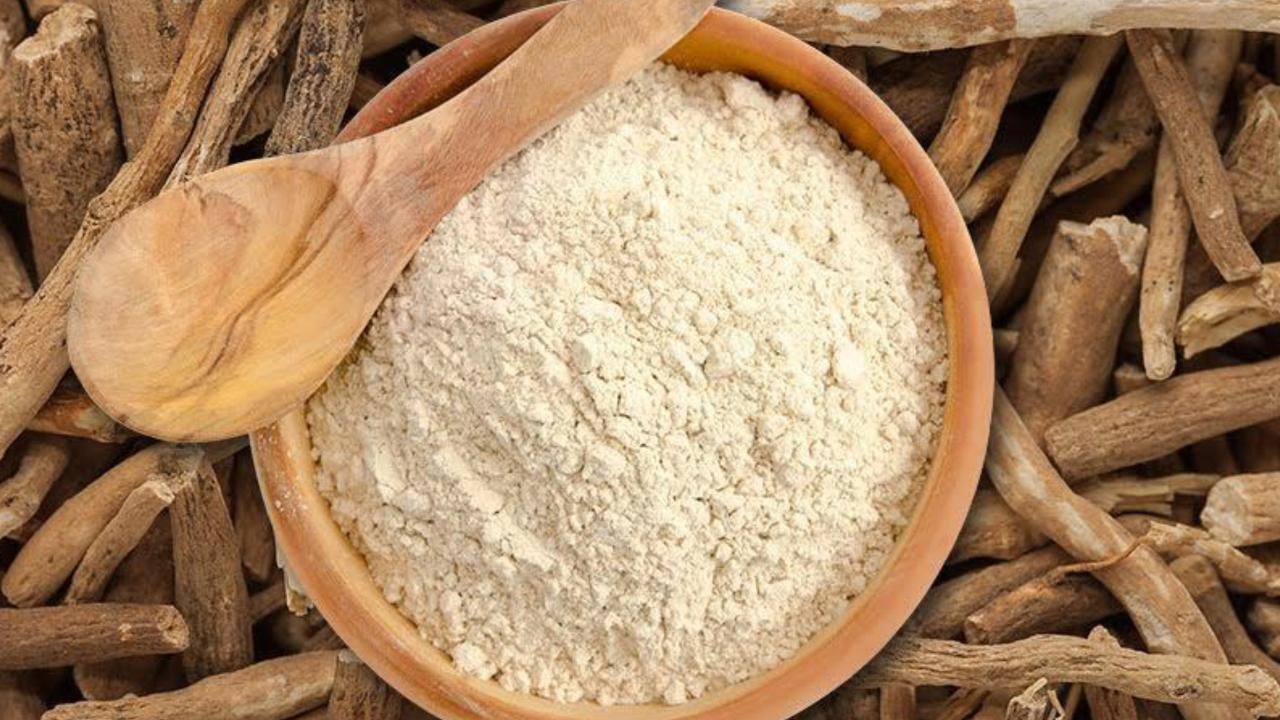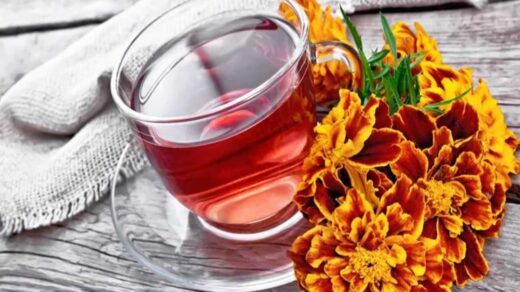Shatavari: Nature’s Remedy for Women, Benefits and Precautions
Shatavari, scientifically known as Asparagus racemosus, is a perennial climbing plant native to the Indian subcontinent. It has been revered for centuries in Ayurvedic medicine for its remarkable therapeutic properties. The name “Shatavari” translates to “having a hundred husbands,” reflecting its traditional use in promoting women’s health and fertility.
Importance in Ayurvedic Medicine
In the intricate tapestry of Ayurvedic healing, Shatavari occupies a prominent position. It is considered a “Rasayana,” a rejuvenative herb that promotes overall well-being. Its ability to balance the three doshas (Vata, Pitta, and Kapha) makes it a versatile remedy for various health conditions.
Shatavari is particularly cherished for its profound impact on women’s health. It is often referred to as a “female tonic” due to its beneficial effects on the reproductive system, hormonal balance, and lactation. Beyond women’s health, Shatavari also addresses digestive, respiratory, and skin concerns, among others.
Ayurvedic Properties of Shatavari
Shatavari, scientifically known as Asparagus racemosus, is one of the most revered herbs in Ayurveda, particularly for its benefits related to women’s health. In Ayurvedic tradition, Shatavari is valued for its balancing effects on the body’s doshas (the three fundamental energies in Ayurveda: Vata, Pitta, and Kapha). Let’s explore the Ayurvedic properties of Shatavari in detail:
Rasa (Taste)
- Madhura (Sweet): Shatavari has a sweet taste, which is calming and nourishing to the body. In Ayurveda, sweet-tasting herbs are known to provide strength, support the immune system, and enhance vitality. The sweet rasa of Shatavari contributes to its rejuvenative properties, making it ideal for those needing physical and emotional nourishment.
Virya (Potency)
- Shita (Cooling): Shatavari has a cooling virya, which means it has a cooling effect on the body. This property is particularly beneficial for balancing Pitta dosha, which is associated with heat, inflammation, and irritability. The cooling nature of Shatavari helps soothe and calm the mind and body, making it useful for managing conditions related to excess heat, such as ulcers, gastritis, and hot flashes.
Vipaka (Post-Digestive Effect)
- Madhura (Sweet): After digestion, Shatavari’s sweet post-digestive effect further enhances its nourishing and grounding properties. This sweet vipaka helps to build and maintain ojas, the vital essence that governs immunity, vitality, and overall well-being in Ayurveda. It also supports tissue regeneration and enhances reproductive health.
Guna (Qualities)
- Guru (Heavy): Shatavari has a heavy quality, which means it provides sustenance and stability to the body. This quality is particularly helpful in grounding Vata dosha, which is associated with movement, anxiety, and dryness. The heaviness of Shatavari helps to calm and stabilize the nervous system, making it beneficial for conditions like insomnia and restlessness.
- Snigdha (Unctuous): The unctuous or oily quality of Shatavari aids in lubrication and moisturization of the body’s tissues. This quality is especially useful for balancing Vata dosha, which tends to cause dryness and roughness. Shatavari’s snigdha guna makes it an excellent choice for promoting skin health, improving digestion, and supporting reproductive functions.
Effect on Doshas
- Vata: Shatavari is particularly effective in pacifying Vata dosha due to its sweet taste, heavy quality, and unctuous nature. It helps alleviate symptoms like dryness, anxiety, and irregular menstruation that are often associated with an aggravated Vata.
- Pitta: The cooling effect of Shatavari makes it an ideal herb for balancing Pitta dosha. It helps reduce inflammation, soothe the digestive tract, and calm the mind, addressing Pitta-related issues such as acid reflux, skin rashes, and excessive heat in the body.
- Kapha: While Shatavari is generally balancing for Vata and Pitta, it can increase Kapha if used excessively due to its heavy and oily qualities. However, in moderate amounts, it can still be beneficial for Kapha by providing strength and immunity without causing excess mucus or heaviness.
Prabhava (Special Potency)
- Rasayana (Rejuvenative): In Ayurveda, Shatavari is classified as a rasayana, which means it is a rejuvenative herb that promotes longevity, vitality, and overall health. Shatavari’s rasayana property helps rejuvenate the body’s tissues, enhance immunity, and support reproductive health, making it a key herb for promoting general well-being and resilience.
Shatavari: A Botanical and Ayurvedic Overview
Shatavari, scientifically known as Asparagus racemosus, is a perennial climbing plant belonging to the Asparagaceae family. Native to the Indian subcontinent, it thrives in gravelly, rocky soils at higher altitudes. Characterized by its spiny branches, small white flowers, and red berries, Shatavari has been recognized for its medicinal properties for centuries.
Traditional Uses in Ayurveda
In the ancient Indian system of medicine, Ayurveda, Shatavari holds a place of immense importance. It is often referred to as the “queen of herbs” or the “female tonic” due to its profound benefits for women’s health.
Key Ayurvedic principles associated with Shatavari include:
- Rasayana: It is considered a rejuvenative herb, promoting overall well-being and longevity.
- Vata, Pitta, Kapha balance: Shatavari is believed to harmonize the three doshas, essential for maintaining health.
- Female reproductive health: It is widely used to support hormonal balance, fertility, pregnancy, and lactation.
Beyond women’s health, Shatavari is also employed in Ayurveda for its potential benefits in digestion, respiratory health, and skin conditions.
Nutritional Profile of Shatavari
While Shatavari is primarily valued for its phytochemical constituents rather than its macronutrient content, it does offer a range of essential vitamins, minerals, and bioactive compounds.
Key Nutrients and Compounds
- Saponins: These steroidal glycosides are the primary active compounds in Shatavari. They contribute to the herb’s anti-inflammatory, antioxidant, and hormone-balancing properties.
- Mucilages: These soluble fibers provide a soothing effect on the digestive system and help in managing conditions like gastritis and ulcers.
- Vitamins and Minerals: Shatavari contains essential vitamins like vitamin C, which supports immunity, and minerals like iron and calcium, crucial for various bodily functions.
- Antioxidants: Compounds like racemofuran, asparagamine A, and racemosol offer protection against oxidative stress, reducing damage to cells.
How Shatavari Contributes to Health Benefits
- Hormonal Balance: Saponins in Shatavari are believed to support hormonal regulation, making them beneficial for conditions related to hormonal fluctuations, such as menopause and menstrual irregularities.
- Digestive Health: The mucilaginous content helps soothe the digestive tract, aiding in conditions like gastritis and ulcers.
- Immune Support: Vitamin C and antioxidant properties contribute to a robust immune system.
- Anti-inflammatory Effects: Saponins and other compounds help reduce inflammation in the body.
- Overall Well-being: The combination of nutrients and bioactive compounds promotes general health and vitality.
It’s essential to note that while Shatavari offers a range of potential benefits, scientific research is still ongoing to fully understand its complete nutritional profile and the mechanisms behind its therapeutic effects.
Health Benefits of Shatavari for Women
Shatavari, often hailed as the “queen of herbs,” has been traditionally used in Ayurvedic medicine to support women’s health in numerous ways.
Hormonal Balance
- Regulating menstrual cycles: Shatavari helps to balance hormones, which can contribute to more regular menstrual cycles and reduce associated discomfort.
- Easing menopause symptoms: Its hormone-balancing properties can alleviate common menopausal symptoms such as hot flashes, mood swings, and vaginal dryness.
Fertility Enhancement
- Boosting reproductive health: Shatavari is believed to nourish the reproductive system, promoting overall reproductive health.
- Supporting lactation: Traditionally used as a galactagogue, Shatavari can help increase milk production in breastfeeding mothers.
Immune System Support
- Enhancing immunity: The antioxidant properties of Shatavari help strengthen the immune system, protecting the body from infections.
- Preventing infections: Its antimicrobial actions can help prevent various infections, including urinary tract infections.
Digestive Health
- Alleviating digestive issues: Shatavari has a soothing effect on the digestive system, helping with issues like indigestion, bloating, and irritable bowel syndrome (IBS).
- Promoting gut health: Its prebiotic-like properties can support a healthy gut microbiome.
Stress and Anxiety Relief
- Reducing stress levels: Shatavari has adaptogenic properties, helping the body adapt to stress and promoting relaxation.
- Improving mental health: Some studies suggest that it may have mood-enhancing effects, helping to alleviate anxiety and depression.
It’s important to note that while Shatavari has been used traditionally for these benefits, scientific research is still ongoing to fully understand its mechanisms of action.
Top 5 Brands and Products in the Market
Here are some of the top brands that are known for producing high-quality Shatavari supplements:
1. Himalaya Herbal Healthcare
- Product: Himalaya Organic Shatavari
- Form: Capsules
- Features: Certified organic, free from additives, and third-party tested for purity and potency.
2. Organic India
- Product: Organic India Shatavari Capsules
- Form: Capsules
- Features: Made from organic, sustainably sourced Shatavari, and known for high potency and purity.
3. Banyan Botanicals
- Product: Banyan Botanicals Shatavari Powder
- Form: Powder
- Features: USDA-certified organic, non-GMO, and traditionally sourced and processed.
4. Gaia Herbs
- Product: Gaia Herbs Shatavari
- Form: Liquid Extract
- Features: Certified organic and easy to absorb, this liquid extract is known for its potency and fast action.
5. Pukka Herbs
- Product: Pukka Organic Shatavari
- Form: Capsules
- Features: Certified organic, ethically sourced, and known for its high-quality Ayurvedic formulations.
Choosing the right Shatavari supplement requires a bit of research and consideration. By focusing on purity, form, dosage, brand reputation, and value. You can find a your product that fits your needs and helps you reap the full benefits of this powerful herb.
Always consult with a healthcare provider before starting any new supplement, especially if you have underlying health conditions or are taking other medications.
How to Use Shatavari?
Shatavari is available in several forms, each with its own method of consumption.
Forms of Shatavari
- Powder: This is the most common form and offers maximum flexibility in usage.
- Capsules: Pre-measured doses for convenience.
- Tablets: Similar to capsules, but often larger.
- Liquid extracts: Concentrated form for quicker absorption.
Recommended Dosage and Methods of Consumption
Disclaimer: The ideal dosage can vary depending on individual health conditions, age, and the specific reason for using Shatavari. It’s essential to consult with an Ayurvedic practitioner or healthcare provider for personalized guidance.
General guidelines:
Powder:
- Typically, 1-2 teaspoons of Shatavari powder can be mixed with warm milk, honey, or water.
- Can be added to smoothies or juices for improved taste.
Capsules/Tablets:
- Follow the dosage instructions on the product label.
- Usually taken with water.
Liquid extracts:
- Dilute in water according to product instructions.
Timing: Shatavari is generally well-tolerated and can be taken at any time of the day. However, some people prefer to take it in the morning or evening.
Important Considerations:
Start with a low dose: Begin with a smaller amount to assess your body’s response.
- Consult a healthcare professional: If you have any underlying health conditions or are pregnant or breastfeeding, seek medical advice before using Shatavari.
- Quality and purity: Choose reputable brands to ensure the quality of the product.
Remember: While Shatavari is generally safe, individual reactions can vary. If you experience any adverse effects, discontinue use and consult a healthcare provider.
Shatavari vs. Other Herbal Supplements
Shatavari is often compared to other herbs due to its versatile health benefits. Let’s explore some common comparisons:
Shatavari vs. Other Herbs
- Shatavari vs. Ashwagandha: Both are adaptogens, helping the body manage stress. However, Shatavari is particularly renowned for women’s health, while Ashwagandha is often used for overall vitality and stress reduction.
- Shatavari vs. Licorice: Both have anti-inflammatory properties. Licorice is often used for digestive issues and respiratory problems, while Shatavari is more versatile, addressing women’s health and digestion.
- Shatavari vs. Maca: Both are considered adaptogens and support hormonal balance. Maca is often used to boost energy and libido, while Shatavari focuses more on women’s reproductive health.
Why Shatavari Stands Out
Comprehensive women’s health support: Shatavari is uniquely positioned to address various aspects of women’s health, from menstrual cycles to menopause.
- Hormonal balance: Its ability to balance hormones is a key differentiator.
- Digestive and immune support: While not its primary focus, Shatavari offers additional benefits for these systems.
- Gentle and nourishing: Shatavari is generally well-tolerated and has a reputation for being gentle on the body.
While other herbs offer specific benefits, Shatavari’s holistic approach to women’s health makes it a valuable addition to many herbal regimens.
Potential Side Effects of Shatavari
While Shatavari is generally considered safe, like any supplement, it can cause side effects in some individuals.
Common Side Effects
- Allergic reactions: Some people may experience allergic reactions, especially if they are allergic to asparagus. Symptoms may include rash, itching, difficulty breathing, and swelling.
- Digestive upset: Occasionally, Shatavari might cause digestive discomfort such as diarrhea or bloating.
Who Should Avoid Shatavari?
- Pregnant and breastfeeding women: While traditionally used to boost lactation, more research is needed to establish its safety during pregnancy and breastfeeding. It’s best to consult with a healthcare provider.
- People with hormone-sensitive conditions: Conditions like breast cancer, ovarian cancer, or endometriosis may be influenced by hormone levels. It’s advisable to consult a doctor before using Shatavari.
- Individuals with known allergies: If you have allergies to asparagus or other related plants, avoid Shatavari.
Interactions with Other Medications
Shatavari may interact with certain medications, such as:
- Diuretics: Both Shatavari and diuretics can increase urine production, potentially leading to dehydration.
- Blood sugar-lowering medications: Shatavari might lower blood sugar levels. Using it with diabetes medications could increase the risk of hypoglycemia.
Always consult with a healthcare professional before starting any new supplement, especially if you have underlying health conditions or are taking medications.
How to Choose the Right Shatavari Supplement
Selecting the right Shatavari supplement can make a significant difference in the effectiveness and safety of your wellness routine. With various products on the market, it’s important to consider certain factors to ensure you’re getting the best quality supplement.
Factors to Consider
Purity and Quality
- Look for Additive-Free Products: Choose supplements that are free from fillers, binders, and artificial additives. The purer the supplement, the more effective it is likely to be.
- Organic Certification: Opt for supplements that are certified organic. This ensures the Shatavari was grown without harmful pesticides or chemicals.
- Third-Party Testing: Supplements that have been tested by independent labs for purity, potency, and safety are generally more reliable. Look for seals of approval from recognized organizations.
Form of Shatavari
- Powder: This is one of the most traditional forms of Shatavari. It can be mixed with warm milk or water and is often considered more potent.
- Capsules/Tablets: These are convenient and ensure a consistent dosage. They are a good choice for those who prefer not to taste the herb.
- Liquid Extract: This form is easy to absorb and can be added to drinks or taken directly. It’s a versatile option for those who need a quick and efficient way to consume Shatavari.
Dosage and Concentration
- Standardized Extract: Look for supplements that indicate a standardized extract of Shatavari. This means the active ingredients are present in consistent amounts, providing reliable potency.
- Appropriate Dosage: Check the recommended dosage on the label and make sure it aligns with your healthcare provider’s advice. Avoid products that suggest excessively high doses.
Brand Reputation
- Established Brands: Choose supplements from well-known brands with a track record of producing high-quality herbal products.
- Customer Reviews: Reading customer reviews can provide insights into the product’s effectiveness and any potential issues. Be sure to look for detailed reviews, not just ratings.
Price and Value
- Cost vs. Quality: While it might be tempting to go for the cheapest option, quality should not be compromised. Sometimes, paying a bit more ensures you get a product that is safe and effective.
- Quantity and Dosage: Consider how many servings are in the bottle and how long it will last you. A slightly more expensive product with a higher dosage or more servings might be a better value in the long run.
FAQs
1. Can Shatavari be used during pregnancy?
Shatavari is often recommended for postpartum care to promote lactation, but its use during pregnancy should be approached with caution. It’s essential to consult with a healthcare provider before using Shatavari during pregnancy to ensure the safety of both mother and baby.
2. Is Shatavari safe for long-term use?
Shatavari is generally considered safe for long-term use, especially when taken at the recommended dosage. However, it’s important to monitor your body’s response and consult with a healthcare provider periodically to avoid any potential side effects.
3. How long does it take to see results from Shatavari?
The time it takes to see results from Shatavari can vary depending on the individual and the condition being treated. Some people may notice improvements in a few weeks, while others might take longer. Consistent use is key to experiencing the full benefits of Shatavari.
4. Are there any dietary restrictions while taking Shatavari?
There are no specific dietary restrictions while taking Shatavari, but maintaining a balanced diet can help enhance its effectiveness. Drinking plenty of water and eating a diet rich in fruits, vegetables, and whole grains can support the herb’s health benefits.
5. Can men use Shatavari for health benefits?
Yes, men can also benefit from Shatavari. While it is commonly used to support women’s reproductive health, Shatavari can also enhance immune function, reduce stress, and promote overall vitality in men. However, it’s best to consult with a healthcare provider before starting any new supplement.
In the ancient Indian system of medicine, Ayurveda, Shatavari holds a place of immense importance. It is often referred to as the “queen of herbs” or the “female tonic” due to its profound benefits for women’s health.
References:
- Shatavari supplementation in postmenopausal women alters the skeletal muscle proteome and pathways involved in training adaptation(1)
- Asparagus racemosus (Shatavari): A Versatile Female Tonic(2)
- Plant profile, phytochemistry and pharmacology of Asparagus racemosus (Shatavari): A review(3)
- Shatavari Supplementation in Postmenopausal Women Improves Handgrip Strength and Increases Vastus lateralis Myosin Regulatory Light Chain Phosphorylation but Does Not Alter Markers of Bone Turnover(4)
- Shatavari – A boon for Women(5)


























Shatavari Herb is the most important herb for female fertility and health. The benefits of Shatavari have led it to being called the Queen of herbs in Ayurveda
Asparagus Racemosus or Shatavari is an Ayurveda herb widely recommended for women’s’it is a natural galactogogue – helps to boost prolactin levels and increases milk supply in nursing mothers.